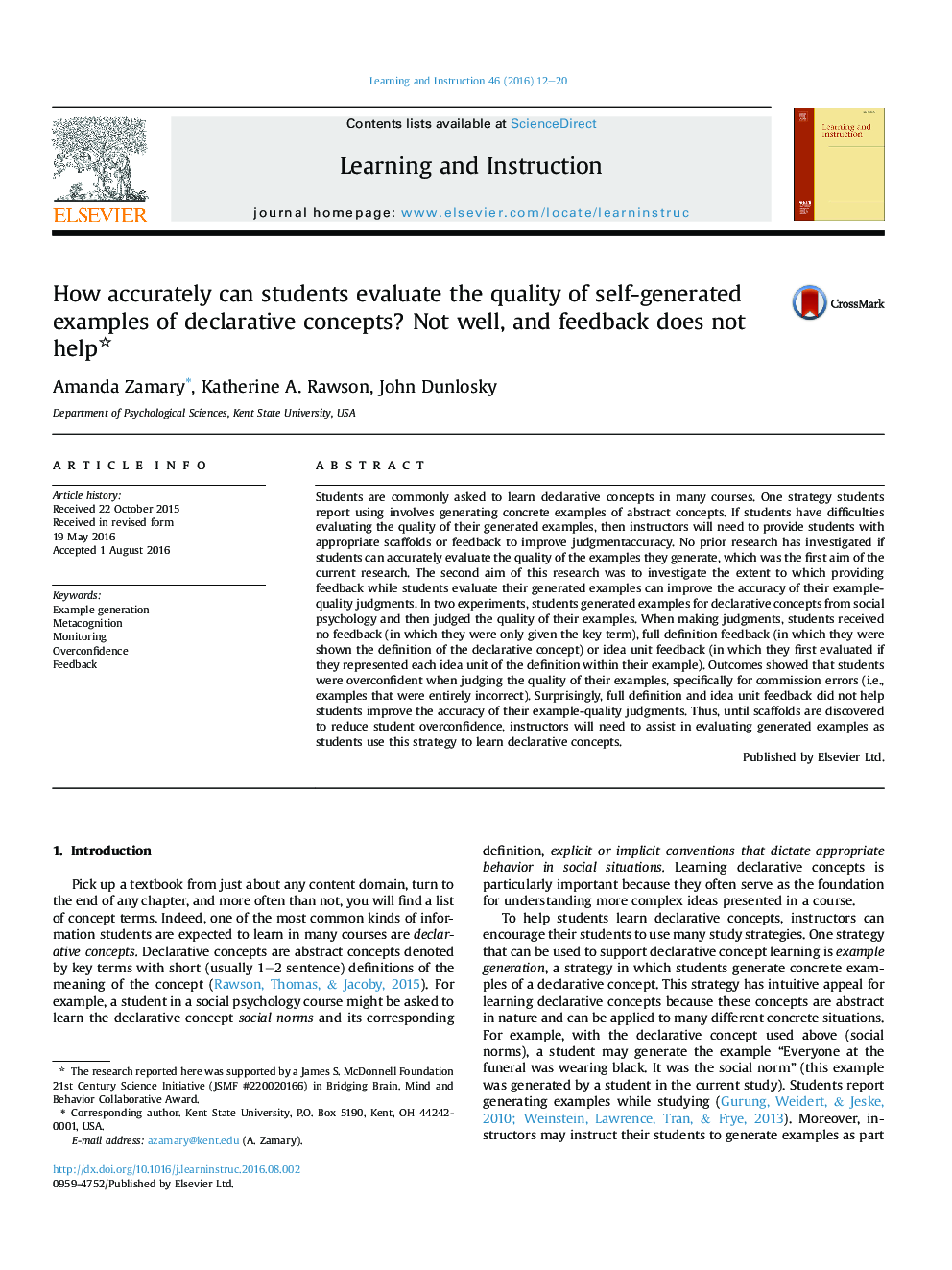| Article ID | Journal | Published Year | Pages | File Type |
|---|---|---|---|---|
| 4940292 | Learning and Instruction | 2016 | 9 Pages |
Abstract
Students are commonly asked to learn declarative concepts in many courses. One strategy students report using involves generating concrete examples of abstract concepts. If students have difficulties evaluating the quality of their generated examples, then instructors will need to provide students with appropriate scaffolds or feedback to improve judgmentaccuracy. No prior research has investigated if students can accurately evaluate the quality of the examples they generate, which was the first aim of the current research. The second aim of this research was to investigate the extent to which providing feedback while students evaluate their generated examples can improve the accuracy of their example-quality judgments. In two experiments, students generated examples for declarative concepts from social psychology and then judged the quality of their examples. When making judgments, students received no feedback (in which they were only given the key term), full definition feedback (in which they were shown the definition of the declarative concept) or idea unit feedback (in which they first evaluated if they represented each idea unit of the definition within their example). Outcomes showed that students were overconfident when judging the quality of their examples, specifically for commission errors (i.e., examples that were entirely incorrect). Surprisingly, full definition and idea unit feedback did not help students improve the accuracy of their example-quality judgments. Thus, until scaffolds are discovered to reduce student overconfidence, instructors will need to assist in evaluating generated examples as students use this strategy to learn declarative concepts.
Related Topics
Social Sciences and Humanities
Psychology
Developmental and Educational Psychology
Authors
Amanda Zamary, Katherine A. Rawson, John Dunlosky,
